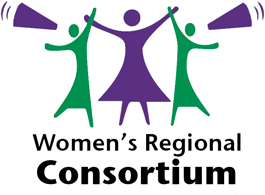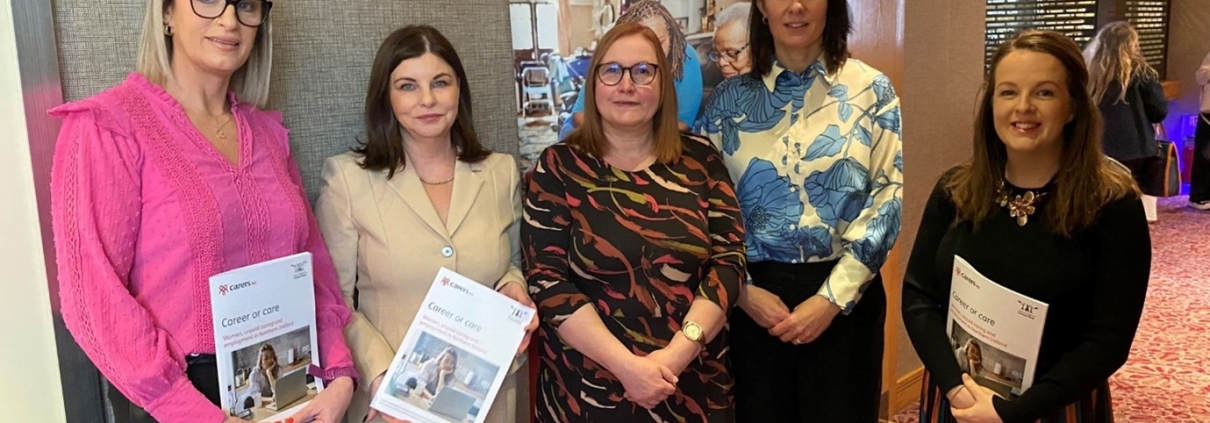The latest Consortium research paper on Women, Unpaid Care & Employment was published in February in collaboration with Carers NI. The final report includes a wealth of feedback from women who took part in focus group sessions as well as the results of survey data from Carers NI through their State of Caring report. Siobhán will continue to work with Carers NI on lobbying for the recommendations in the report and we hope that you can also use the findings and recommendations in this report to lobby locally.
The report made the following recommendations for employers:
- Raise awareness of unpaid caring within the workplace, including sources of advice, information and support for carers
- Identify and support staff with caring roles – including through line manager training on recognition and support of unpaid carers and young carers entering the labour market for the first time
- Engage with carers and carer organisations to introduce carer friendly policies and supportive workplace cultures for carers including flexible working options as a day 1 right and paid carers leave that is separate to holiday entitlement
- Adopt Carers UK’s Carer Confident benchmark, run by Employers for Carers, to move towards becoming a carer friendly employer
- Develop work placements and training schemes to support young adult carers to enter the labour market and those carers returning to work
The report made the following recommendations for Government:
- Work with relevant bodies to raise awareness of carers’ existing rights within the workplace, as well as the benefits of flexibility for unpaid carers
- Enshrine carers rights in legislation to ensure consistency across employers
- Legislate for paid carer’s leave from work that is separate to annual leave and a day one right to request flexible working for all unpaid carers
- Raise the Carer’s Allowance earnings threshold to the equivalent of 21 hours per week at the National Living Wage. Introduce an interim Carer’s Allowance Supplement scheme with a view to then increasing the level of Carer’s Allowance to £120 per week
- Cut waiting times for welfare support for carers who may move in and out of work frequently
- Review how women who reduce or stop employment to care can be supported to maintain their state pension contribution
- Improve support for carers to access further and higher education through financial support, such as bursaries and increased availability of part time and online courses
- Reform the social care system to provide reliable, consistent, high quality replacement and support care, including domiciliary care, respite, day services and services for young adults with special needs to support the transition from children’s services
- Deliver a fit for purpose and affordable childcare system across the whole of Northern Ireland including appropriate childcare for children with special needs (both during term time and in school holidays)
- Develop tailored employability programmes to support and retrain carers who wish to return to employment after a caring role has ended or reduced
- Provide accessible, timely mental health support for working carers
The report made the following recommendations for wider society:
- Recognise and value the immense contribution unpaid carers make to society
- Adopt a universal caregiver approach where unpaid caring no longer has such a gendered dimension.
You can read the full research paper and a shorter 4-page summary of the research on the Consortium website here:



